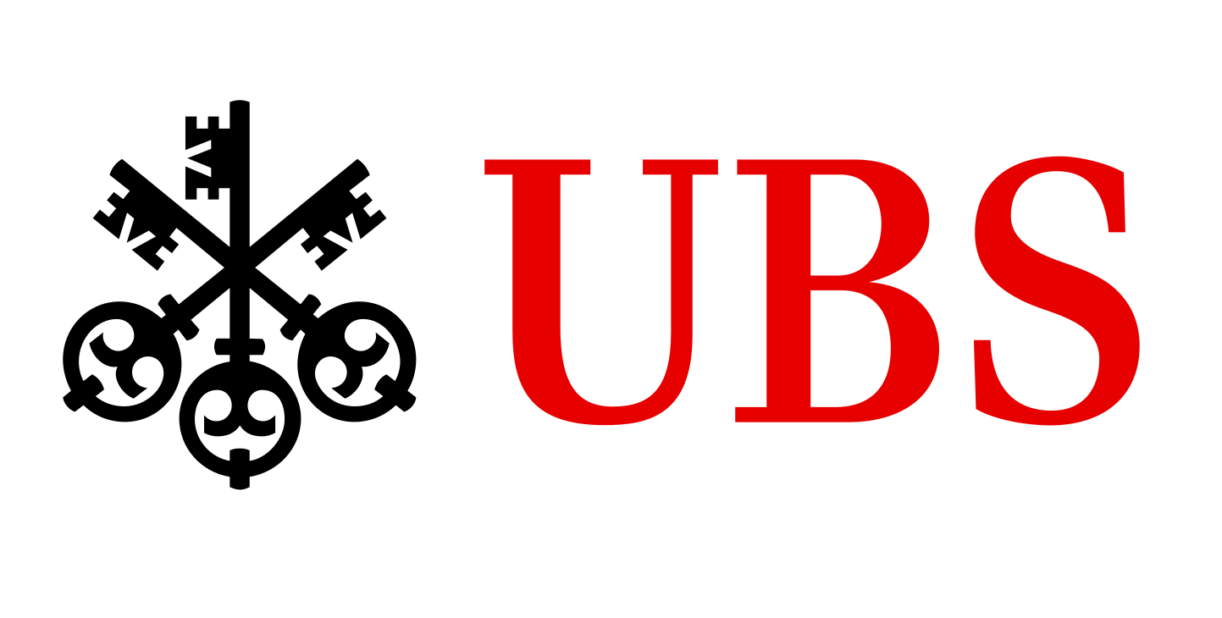UBS Group AG, originally known as Union Bank of Switzerland, was founded in 1862 and has grown into a global systemically important bank, as designated by the Financial Stability Board (FSB). The bank operates across multiple segments, including Global Wealth Management, Personal and Corporate Banking, Asset Management, Investment Banking, and Non-core and Legacy portfolios. With a presence in major financial centers worldwide, UBS serves private, institutional, and corporate clients, including approximately half of the world’s billionaires.
The question of ownership is critical for investors, analysts, and the general public, as it sheds light on the influence and stability of the institution. UBS’s ownership is not concentrated in the hands of a single entity but is distributed across a diverse group of shareholders, including institutional investors, retail investors, and nominees. This article will break down the ownership structure, highlight major shareholders, and explain the regulatory environment governing UBS’s shareholding disclosures.
The Ownership Structure of UBS Group AG
UBS Group AG is a publicly traded company listed on the SIX Swiss Exchange (UBSG.SW) and the New York Stock Exchange (UBS). As a publicly traded entity, its ownership is dispersed among a wide range of shareholders, including institutional investors, retail investors, private companies, and nominees. According to data from reliable sources, UBS’s shares are widely held, with no single entity dominating ownership. This broad distribution reflects UBS’s status as a global financial institution with significant market influence.
Institutional Investors
Institutional investors, such as pension funds, mutual funds, and hedge funds, hold a significant portion of UBS’s shares. As of recent data, approximately 54% of UBS’s shares are owned by institutional investors, indicating their confidence in the bank’s long-term stability and growth potential. These institutions manage large pools of capital on behalf of their clients, making their involvement a key indicator of UBS’s financial health.
Some of the major institutional shareholders include:
- Norges Bank: Norway’s central bank, through its sovereign wealth fund, is one of the largest shareholders, holding over 3% of UBS’s total share capital. The fund’s investment reflects UBS’s attractiveness as a stable, long-term investment.
- BlackRock Inc.: As one of the world’s largest asset managers, BlackRock holds a significant stake in UBS, typically exceeding 3% of the voting rights. BlackRock’s involvement underscores UBS’s global prominence.
- Artisan Partners Limited Partnership: This investment management firm is another notable shareholder, with a stake above the 3% threshold required for disclosure in Switzerland.
- Massachusetts Financial Services Company: Known for its conservative investment strategies, this firm also holds a substantial portion of UBS shares.
- Dodge & Cox International Stock Fund: This mutual fund has been reported as a significant shareholder, further diversifying UBS’s institutional ownership.
These institutions are required to disclose their holdings if they exceed certain thresholds (e.g., 3%, 5%, or 10% of voting rights), as mandated by the Swiss Financial Market Supervisory Authority (FINMA) and the SIX Swiss Exchange.
Nominee Companies
Nominee companies, which hold shares on behalf of other investors, play a significant role in UBS’s ownership structure. These entities provide custodial services, allowing investors to maintain anonymity while holding securities. The top nominee shareholders include:
- Chase Nominees Ltd.: A UK-based company providing nominee services, Chase Nominees holds a significant portion of UBS shares on behalf of its clients. While the legal ownership remains with the clients, Chase Nominees facilitates the secure holding and transfer of these shares.
- DTC (Cede & Co.): The Depository Trust Company, through its nominee Cede & Co., is a major shareholder, acting as a clearinghouse for banks, brokers, and other financial institutions. This entity expedites the trading and settlement of UBS shares.
- Nortrust Nominees Ltd.: Based in London, this private investment firm provides custodial services and holds a notable stake in UBS.
Nominees are subject to special provisions under UBS’s share register rules. They can be registered with voting rights up to 5% of the total shares, provided they agree to disclose beneficial owners holding 0.3% or more upon UBS’s request. This ensures transparency while respecting client confidentiality, a cornerstone of Swiss banking culture.
Retail Investors and the General Public
Retail investors, or individual investors who purchase shares using their own funds, own approximately 45.7% of UBS’s shares. These investors typically have smaller holdings compared to institutions but collectively form a significant portion of the shareholder base. Retail ownership reflects public confidence in UBS and its ability to deliver value through dividends and share price appreciation.
Individual insiders, such as UBS executives and board members, hold a minimal portion of the shares, approximately 0.3%. This low insider ownership suggests that UBS’s management relies more on performance-based compensation than direct equity stakes, aligning their interests with broader shareholder value.
Private Companies
Private companies own a negligible portion of UBS’s shares, approximately 0.007%. These entities are typically small investment firms or holding companies with minor stakes, further diversifying the ownership structure.
Regulatory Framework Governing UBS Ownership
Switzerland’s banking regulations, overseen by FINMA, play a crucial role in shaping UBS’s ownership structure. The Swiss Financial Market Infrastructure Act requires shareholders to disclose their holdings if they reach, exceed, or fall below certain thresholds (3%, 5%, 10%, 15%, 20%, 25%, 33⅓%, 50%, or 66⅔% of voting rights). These disclosures are reported to UBS and the SIX Swiss Exchange, ensuring transparency in the ownership of systemically important institutions like UBS.
UBS’s Articles of Association and Swiss law impose no restrictions on non-resident or foreign owners holding its securities, making it accessible to global investors. Additionally, there are no Swiss foreign exchange controls or laws restricting the import or export of capital, facilitating international investment in UBS. Dividends, interest, and other payments to non-resident shareholders are also unrestricted, enhancing UBS’s appeal to global investors.
The SIX Swiss Exchange website provides detailed information on significant shareholdings, while UBS’s Annual Report offers insights into its own shareholdings and major shareholders. These reports are critical for investors seeking to understand the bank’s ownership dynamics.
UBS’s Acquisition of Credit Suisse and Its Impact on Ownership
In 2023, UBS acquired Credit Suisse, another major Swiss bank, in a government-brokered deal following Credit Suisse’s collapse. This acquisition significantly expanded UBS’s asset base and market presence, making it an even more critical player in global finance. However, the acquisition also raised questions about its impact on UBS’s ownership structure.
The acquisition was executed through a share swap, where Credit Suisse shareholders received UBS shares in exchange for their holdings. This diluted existing UBS shareholders’ stakes but also broadened the shareholder base. The integration of Credit Suisse’s operations and clients has strengthened UBS’s position, but it has also prompted regulatory scrutiny. Swiss authorities are considering stricter capital requirements to ensure the stability of the enlarged UBS, which could influence investor sentiment and ownership patterns in the future.
Why Ownership Matters for UBS Investors
Understanding UBS’s ownership structure is crucial for several reasons:
- Stability and Influence: Institutional ownership signals confidence from large, sophisticated investors, indicating stability. However, concentrated ownership could lead to undue influence by a few shareholders, which is not a concern for UBS given its diversified shareholder base.
- Market Perception: The presence of reputable institutions like Norges Bank and BlackRock enhances UBS’s credibility, potentially boosting its share price.
- Regulatory Compliance: Transparency in ownership ensures compliance with Swiss regulations, reducing the risk of legal or reputational issues.
- Investment Decisions: Retail investors can gauge the company’s health by analyzing the involvement of institutional investors and nominees, as their participation often reflects thorough due diligence.
UBS’s Corporate Governance and Shareholder Engagement
UBS places a strong emphasis on corporate governance, ensuring that its ownership structure aligns with the interests of shareholders. The bank’s Investor Relations team communicates regularly with investors, financial analysts, and rating agencies to maintain transparency and achieve fair valuation for its shares. Key initiatives include:
- Annual General Meeting (AGM): UBS’s AGM, scheduled for April 10, 2025, in Luzern, provides a platform for shareholders to engage with management, vote on key issues, and influence the bank’s strategic direction.
- Quarterly Results Presentations: Senior management presents quarterly results via webcasts, available on UBS’s Investor Relations website. These presentations offer insights into the bank’s performance and strategic priorities.
- Disclosure Practices: UBS adheres to best-in-class disclosure standards, publishing detailed financial reports, including Form 20-F filings with the U.S. Securities and Exchange Commission (SEC).
UBS’s Role in the Global Financial System
As a global systemically important bank, UBS’s ownership structure is closely monitored by regulators worldwide. The Financial Stability Board’s designation underscores UBS’s critical role in the global financial system, with its operations impacting markets across the Americas, EMEA, and Asia-Pacific. The bank’s ability to attract diverse shareholders reflects its robust business model and commitment to client confidentiality, a hallmark of Swiss banking.
UBS’s ownership also ties into its reputation for managing the largest amount of private wealth globally. Approximately half of the world’s billionaires are UBS clients, highlighting its dominance in wealth management. This client base contributes to the bank’s stability, as high-net-worth individuals and institutions continue to trust UBS with their assets.
Challenges and Controversies
UBS’s ownership and operations have not been without challenges. The bank has faced scrutiny over its banking secrecy practices, particularly in relation to tax evasion allegations. In 2009 and 2010, UBS reached agreements with the U.S. Internal Revenue Service (IRS) and the U.K.’s HM Revenue and Customs to enhance transparency while maintaining strict client confidentiality protocols. These agreements allow UBS to disclose client information only in cases of proven financial fraud, balancing regulatory compliance with its commitment to privacy.
Additionally, in 2014, the U.S. Federal Deposit Insurance Corporation (FDIC) filed a lawsuit against UBS and 15 other banks for allegedly manipulating Libor interest rates. While these controversies have not significantly altered UBS’s ownership structure, they highlight the importance of transparency and regulatory compliance in maintaining investor confidence.
Future Outlook for UBS Ownership
Looking ahead, UBS’s ownership structure is likely to remain diversified, with institutional investors continuing to play a dominant role. The integration of Credit Suisse’s operations may attract new investors, particularly those interested in UBS’s expanded wealth management and investment banking capabilities. However, potential regulatory changes, such as increased capital requirements, could influence investor sentiment and shareholding patterns.
UBS’s commitment to sustainability and environmental, social, and governance (ESG) principles may also attract socially conscious investors. Since 2011, UBS has integrated RepRisk data into its compliance processes to mitigate ESG-related risks, enhancing its appeal to institutional investors prioritizing sustainable investments.
Conclusion
UBS Group AG’s ownership is characterized by a diverse and balanced shareholder base, with institutional investors holding approximately 54% of shares, retail investors owning 45.7%, and nominees and private companies holding smaller stakes. Major shareholders like Norges Bank, BlackRock, and Chase Nominees Ltd. reflect UBS’s global appeal and financial stability. Switzerland’s robust regulatory framework ensures transparency, while UBS’s corporate governance practices foster shareholder trust. The acquisition of Credit Suisse has further solidified UBS’s position as a global financial leader, though it has introduced new regulatory and ownership considerations.
For investors and analysts, understanding UBS’s ownership provides valuable insights into its stability, market perception, and future growth potential. As UBS navigates regulatory challenges and expands its global footprint, its ownership structure will continue to evolve, reflecting its status as a cornerstone of the global financial system.
Sources
- UBS Group AG. (2025). Annual Report 2024. https://www.ubs.com/global/en/investor-relations/financial-information/annual-reports.html
- SIX Swiss Exchange. (2025). Disclosure of Shareholdings. https://www.six-exchange-regulation.com/en/home/issuer/obligations/disclosure-of-shareholdings.html
- Yahoo Finance. (2025). UBS Group AG (UBS) Stock Major Holders. https://finance.yahoo.com/quote/UBS/holders/
- Capital.com. (2023). UBS Group Shareholders. https://capital.com/ubs-group-shareholders
- Nasdaq. (2025). UBS Group AG Institutional Holdings. https://www.nasdaq.com/market-activity/stocks/ubs/institutional-holdings

